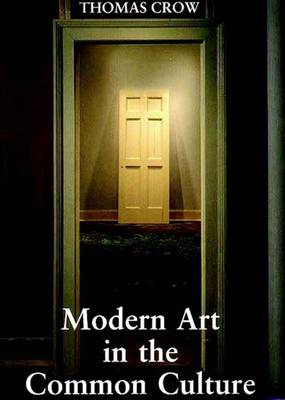Must avant-garde art hold itself apart from the values and beliefs widely held in the common culture? Must advanced artists always be symbolic adversaries of the ordinary citizen? These questions have dominated, even paralyzed the modern art world, particularly in recent years when perceived elitism and imposed canons of taste have come under fire from all sides. This book shows that the links between advanced art and modern mass culture have always been robust, indeed necessary to both. Thomas Crow focuses on the continual interdependence between the two phenomena, providing examples that range from Paris in the mid-19th century to the latest revivals of Conceptual art in the 1990s.
Crow's argument proceeds through a series of episodes: Jackson Pollock being enlisted into the realm of fashion by his first patron; Andy Warhol keeping one foot in a small-town sentiment through his work of the 1960s; an artist, Sturtevant, confronting incomprehension and hostility when she turned Pop Art tactics against the Pop painters themselves (and being vindicated 20 years later by an entirely new generation of artists); Gerhard Richter's painting converging with amateur production in its uses of photography; Gordon Matta-Clark raiding derelict buildings to find the raw material of his sculpture; Ross Bleckner redefining his painting of the 1980s through the decayed, funerary kitsch of Victorian America; and Christopher Williams remaking a high Conceptual art with mental maps provided by the tourist industry.
- ISBN10 0300064381
- ISBN13 9780300064384
- Publish Date 24 April 1996
- Publish Status Out of Print
- Out of Print 22 September 2006
- Publish Country US
- Imprint Yale University Press
- Format Hardcover
- Pages 282
- Language English
